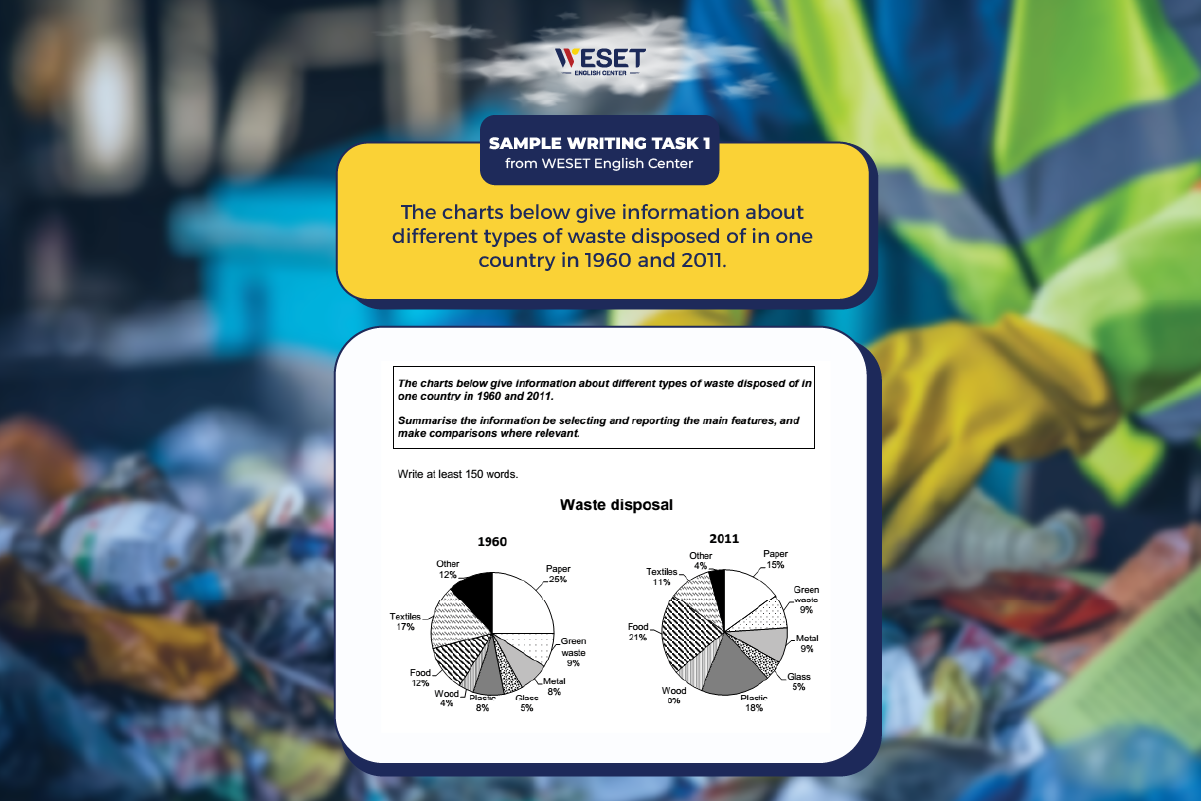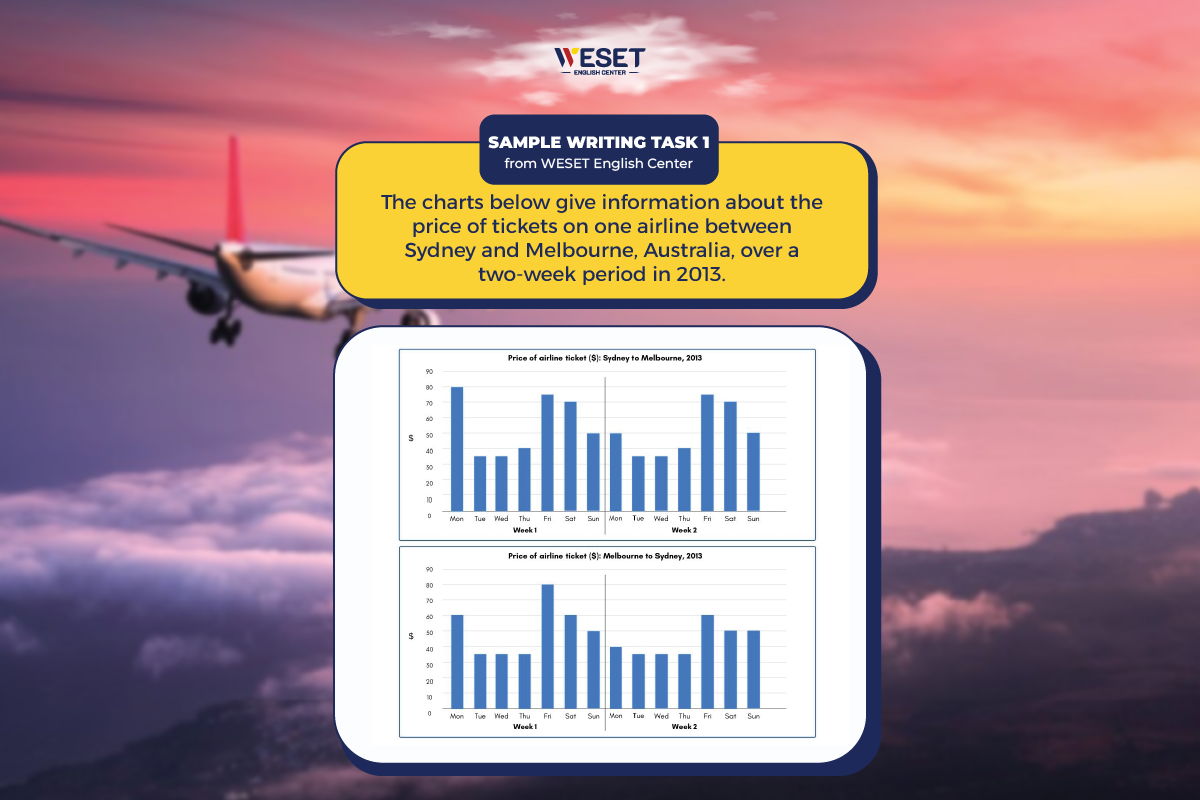IELTS Speaking Shopping – Part 1, 2 & 3 Sample
- Jonathan M. Pham
- Bài mẫu IELTS Sample Speaking, Bài thi IELTS mẫu
- 14/08/2023
MỤC LỤC
Mua sắm là thú vui của rất nhiều người trong chúng ta – ngoài ra, đây cũng là một chủ đề thường gặp trong bài thi nói IELTS. Hôm nay, hãy cùng WESET tìm hiểu một số bài mẫu & từ vựng liên quan đến topic IELTS Speaking Shopping bạn nhé!

IELTS Speaking Shopping – Part 1
Do you enjoy shopping?
Answer: Yes, I really enjoy shopping. It allows me to explore different products, compare prices, and make informed decisions. Moreover, I find the experience of browsing through various stores quite relaxing and enjoyable.
What kind of shops do you usually visit?
Answer: I visit a variety of shops depending on my needs. For everyday items like groceries and household supplies, I usually go to supermarkets or convenience stores. For clothing and accessories, I prefer visiting fashion boutiques or department stores. Additionally, I often browse through electronics stores when I’m looking for gadgets or tech-related items.
Do you prefer shopping online or going to actual stores?
Answer: I find both online shopping and physical store visits to be convenient in their own ways. When I’m looking for specific products or want to save time, I prefer shopping online. On the other hand, when I want to personally examine items, try them on, or seek advice from sales staff, I enjoy going to actual stores.
What was the last thing you bought?
Answer: The last thing I bought was a new book from a local bookstore. I love reading, so whenever I come across an interesting book, I can’t resist buying it. This particular book was recommended by a friend, and I’m looking forward to delving into its pages.
Do you think people are spending more money on shopping nowadays compared to the past?
Answer: Yes, I believe people are spending more money on shopping nowadays compared to the past. With the rise of e-commerce and the convenience it offers, it’s become easier for people to make purchases online. Additionally, the availability of a wide range of products and enticing marketing strategies often encourage people to spend more.
How do you feel when you can’t find what you want to buy?
Answer: When I can’t find what I want to buy, I initially feel a bit disappointed. However, I try to remain positive and view it as an opportunity to explore alternative options. Sometimes, it leads me to discover new products or different stores, which can be exciting and rewarding.
IELTS Speaking Shopping – Part 2
Question: Describe a memorable shopping experience you had. You should say:
- Where and when it happened
- What you bought
- Why it was memorable, and
- How you felt about it
Answer: A few months ago, I had a truly memorable shopping experience when I visited a bustling street market in Bangkok, Thailand. It was during my vacation in March, and I stumbled upon this vibrant market while exploring the city. The moment I entered, I was captivated by the lively atmosphere and the array of unique products on display.
As I walked through the market, one particular item caught my eye—a beautifully handcrafted piece of jewelry made with intricate silver filigree. It was a pendant necklace adorned with a delicate design, featuring a miniature lotus flower. Instantly, I was drawn to its elegance and craftsmanship.
What made this shopping experience truly memorable was not just the purchase itself, but the story behind the necklace. The vendor explained to me that the lotus flower holds great significance in Thai culture, symbolizing purity and enlightenment. As she shared the cultural significance of the necklace, I felt a deeper connection to it.
Moreover, the entire shopping experience was heightened by the warm and welcoming nature of the locals. They were passionate about their craft and eager to share their knowledge with visitors. I engaged in conversations with several vendors, learning more about their traditional techniques and the inspiration behind their creations. It was a truly enriching cultural exchange.
When I finally purchased the pendant necklace, I felt a sense of satisfaction and gratitude. Not only did I acquire a beautiful piece of jewelry, but I also gained a deeper appreciation for Thai culture and craftsmanship. Every time I wear the necklace, it reminds me of that remarkable shopping experience and the meaningful connection I made with the local artisans.
IELTS Speaking Shopping – Part 3
Do you think online shopping will completely replace traditional shopping in the future?
Answer: While online shopping has gained tremendous popularity in recent years, I don’t believe it will completely replace traditional shopping in the future. Traditional shopping offers a sensory experience where customers can physically interact with products, try them on, and seek immediate assistance from sales staff. Additionally, some people enjoy the social aspect of shopping, such as going out with friends or family. However, online shopping will continue to thrive due to its convenience and accessibility, offering a complementary option to traditional shopping.
What are the advantages and disadvantages of shopping in large shopping malls?
Answer: Large shopping malls have both advantages and disadvantages. On the positive side, they provide a one-stop shopping experience with a wide range of products and brands under one roof. They often have various amenities, such as food courts and entertainment facilities, making shopping a complete leisure activity. However, one drawback is that large malls can be overwhelming and crowded, especially during peak times. Additionally, prices in malls may be higher compared to smaller stores or local markets. It ultimately depends on personal preferences and priorities when it comes to shopping in large malls.
How has online shopping impacted traditional retail stores?
Answer: Online shopping has had a significant impact on traditional retail stores. With the rise of e-commerce, many people now prefer the convenience of shopping from the comfort of their homes. This shift has led to decreased footfall in physical stores and, in some cases, store closures. To adapt, traditional retail stores have had to enhance their customer experience by providing unique in-store experiences, personalized services, and integrating online platforms. Despite the challenges, physical stores still play a crucial role as they allow customers to physically examine products and provide immediate gratification.
Why do people sometimes buy things they don’t really need?
Answer: People often buy things they don’t really need due to various psychological and emotional factors. Marketing and advertising techniques are designed to create desire and influence consumer behavior. Impulse buying, driven by instant gratification, can lead individuals to purchase unnecessary items. Additionally, societal pressures, such as keeping up with trends or the desire for status symbols, can also play a role. Emotional factors like stress or boredom may lead to “retail therapy,” where individuals seek comfort or distraction through shopping. Understanding these influences can help individuals make more mindful purchasing decisions.
In your opinion, how can we encourage sustainable shopping practices?
Answer: Encouraging sustainable shopping practices requires a collective effort from individuals, businesses, and governments. Firstly, raising awareness about the environmental and social impact of consumer choices is crucial. Educating people about sustainable alternatives, such as eco-friendly products or ethical brands, can help drive change. Businesses can take responsibility by offering sustainable options, reducing packaging waste, and promoting recycling. Governments can implement regulations and incentives to encourage sustainability, such as imposing taxes on single-use plastics or supporting eco-friendly initiatives. Ultimately, it’s about fostering a culture of conscious consumption and making sustainable choices accessible to everyone.
Từ vựng IELTS Speaking Shopping Vocabulary
| English | Vietnamese |
|---|---|
| Shopping | Mua sắm |
| Products | Sản phẩm |
| Compare prices | So sánh giá |
| Informed decisions | Quyết định thông minh |
| Browsing | Dạo chơi |
| Stores | Cửa hàng |
| Supermarkets | Siêu thị |
| Convenience stores | Cửa hàng tiện lợi |
| Fashion boutiques | Cửa hàng thời trang |
| Department stores | Các cửa hàng chuyên mục |
| Electronics stores | Cửa hàng điện tử |
| Online shopping | Mua sắm trực tuyến |
| Physical stores | Cửa hàng truyền thống |
| Disappointed | Thất vọng |
| Alternative options | Lựa chọn thay thế |
| Purchase | Mua |
| Availability | Sự có sẵn |
| Encouraging | Khuyến khích |
| Sustainable shopping practices | Thói quen mua sắm bền vững |
| Awareness | Nhận thức |
| Eco-friendly | Thân thiện với môi trường |
| Ethical brands | Thương hiệu đạo đức |
| Packaging waste | Rác thải đóng gói |
| Recycling | Tái chế |
| Conscious consumption | Tiêu dùng tỉnh táo |
Lời kết
Trên đây là tổng hợp một số câu trả lời mẫu và từ vựng liên quan đến chủ đề IELTS Speaking Shopping. Hãy dành thời gian thực hành thường xuyên để tự tin đạt điểm cao trong bài thi nói IELTS bạn nhé! Ngoài ra, cũng đừng quên tham khảo thư viện bài mẫu IELTS của WESET English Center và đăng ký nhận bản tin để cập nhật các tip học tiếng Anh mới nhất từ trung tâm.
Sample Speaking theo các chủ đề khác:





